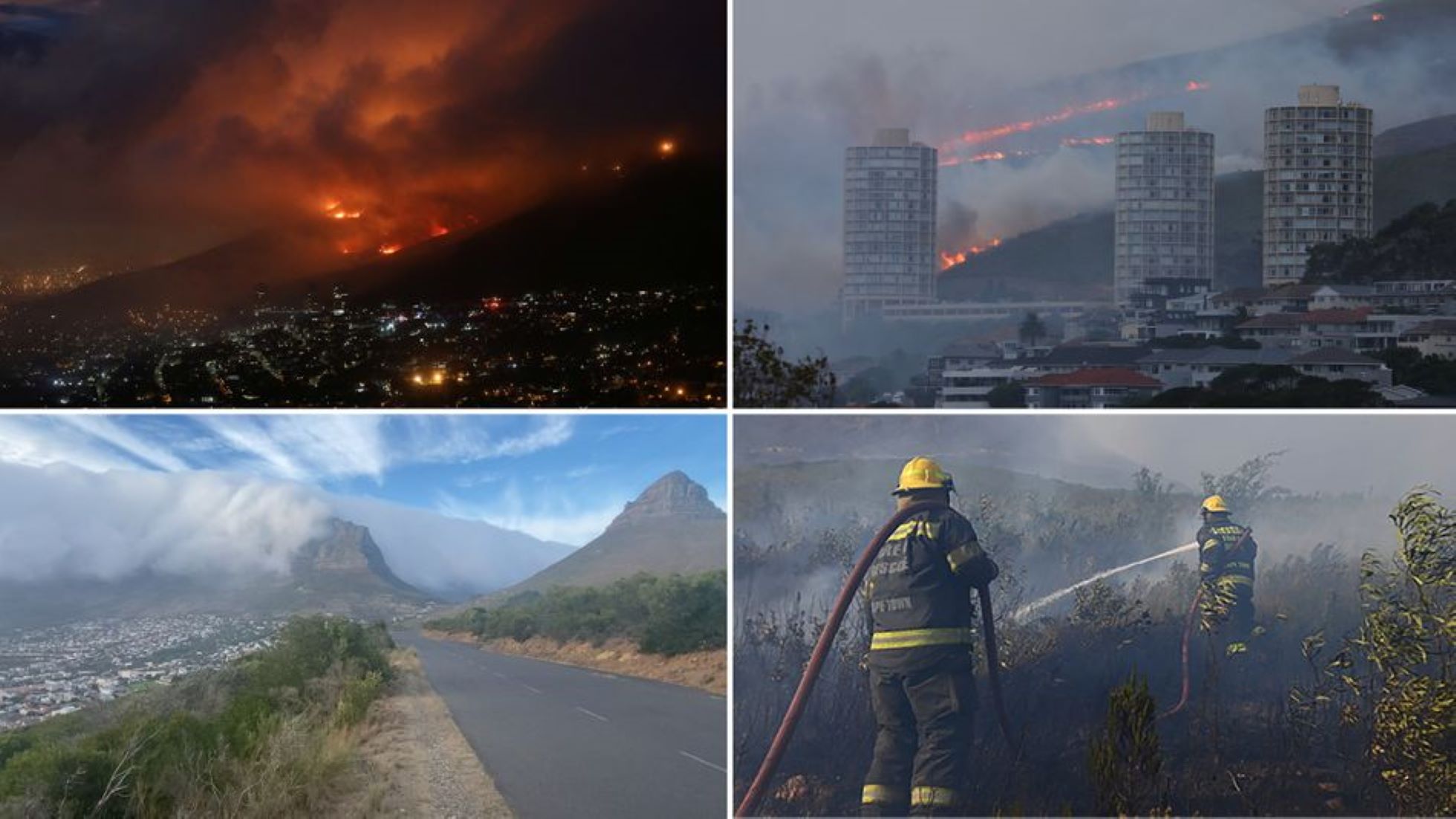CAPE TOWN, Dec 24 (NNN-BUANEWS) – South African firefighters have managed to contain a four-day massive wildfire near Cape Town, the country’s legislative capital, yesterday, as evacuated residents were allowed to return home.
The wildfire started on Tuesday, on the mountain slopes of Simon’s Town, around 40 km south of Cape Town, and part of the City of Cape Town Metropolitan Municipality.
It has since swept across thousands of hectares in the area, resulting in scores of residents being evacuated from their homes.
“The Joint Operations Centre, confirmed that all persons who were asked to evacuate during this week’s fires have been cleared to return home,” said a statement issued on the Cape Town city government’s social media account.
The statement quoted the city’s Disaster Risk Management spokesperson, Sonica Lategan, as saying that, “the firefighting efforts have been scaled back.”
However, firefighters remain on the scene and are on the lookout for any potential flare-ups, while a number of fire-related road closures are still in place.
“We will stay on site until the last ember is extinguished,” said the statement.
Meanwhile, the Cape of Good Hope, one of the country’s most visited tourist attractions, was also able to reopen yesterday, after South African National Parks (SANParks) decided to close it on Friday, due to the danger the fire posed to visitors.
“We are pleased to announce that the Cape of Good Hope/Cape Point section of Table Mountain National Park, previously closed due to safety concerns, amid the fires in the Simon’s Town area, will reopen at 9.00 a.m. today (yesterday),” said SANParks early yesterday, on social media.
Although five firefighters were injured and two of them were transported to hospital on Wednesday, no loss of life or property was recorded.
The fire once put the Naval Base Simon’s Town – South Africa’s largest naval base – under threat, damaging one derelict building on its grounds on Tuesday night.
Wildfires often break out on the mountain slopes around Cape Town in the hot, dry months from Nov to Apr. They become dangerous and unpredictable, when they are fanned by strong coastal winds.– NNN-BUANEWS






